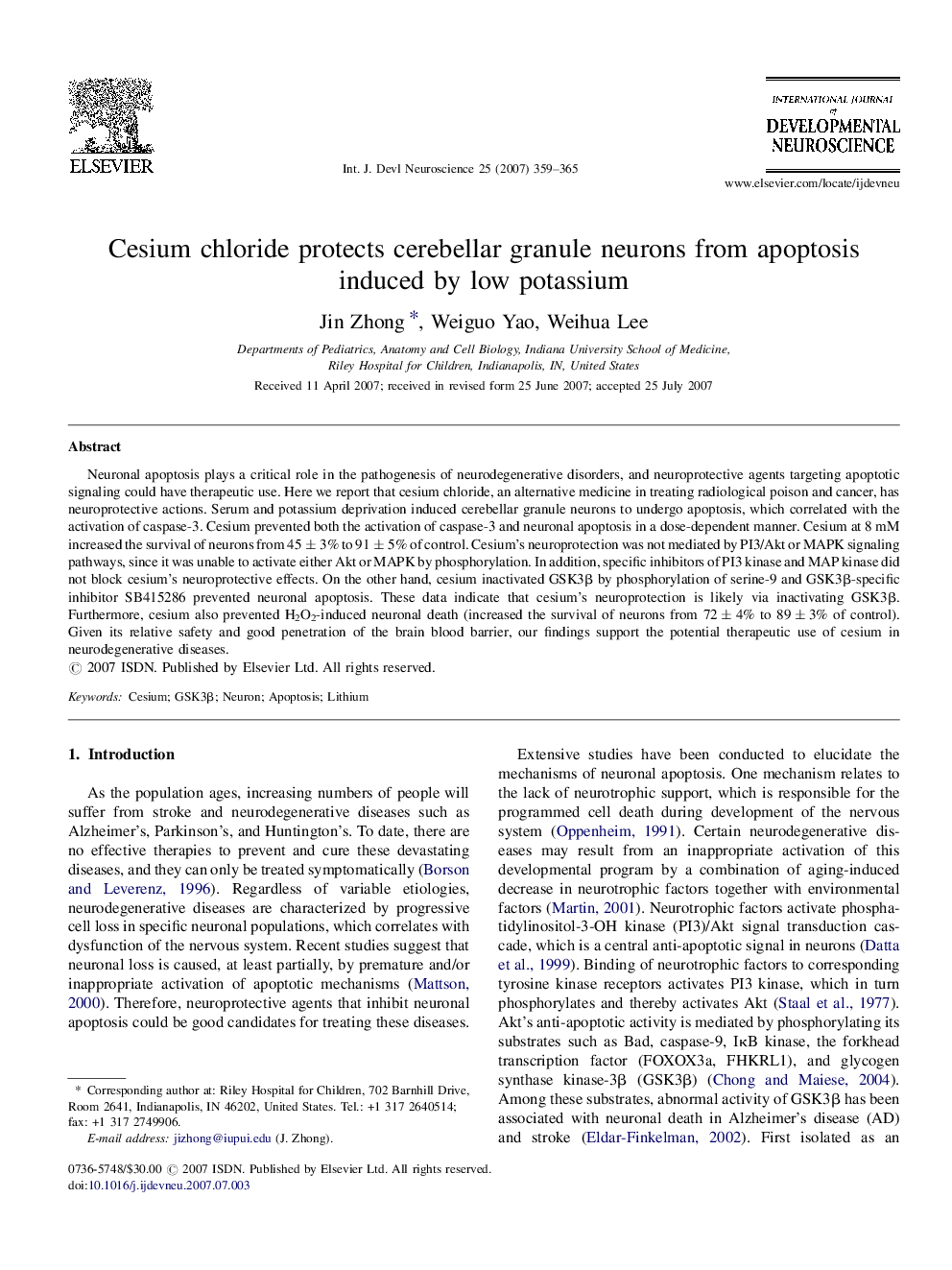| Article ID | Journal | Published Year | Pages | File Type |
|---|---|---|---|---|
| 2786660 | International Journal of Developmental Neuroscience | 2007 | 7 Pages |
Neuronal apoptosis plays a critical role in the pathogenesis of neurodegenerative disorders, and neuroprotective agents targeting apoptotic signaling could have therapeutic use. Here we report that cesium chloride, an alternative medicine in treating radiological poison and cancer, has neuroprotective actions. Serum and potassium deprivation induced cerebellar granule neurons to undergo apoptosis, which correlated with the activation of caspase-3. Cesium prevented both the activation of caspase-3 and neuronal apoptosis in a dose-dependent manner. Cesium at 8 mM increased the survival of neurons from 45 ± 3% to 91 ± 5% of control. Cesium's neuroprotection was not mediated by PI3/Akt or MAPK signaling pathways, since it was unable to activate either Akt or MAPK by phosphorylation. In addition, specific inhibitors of PI3 kinase and MAP kinase did not block cesium's neuroprotective effects. On the other hand, cesium inactivated GSK3β by phosphorylation of serine-9 and GSK3β-specific inhibitor SB415286 prevented neuronal apoptosis. These data indicate that cesium's neuroprotection is likely via inactivating GSK3β. Furthermore, cesium also prevented H2O2-induced neuronal death (increased the survival of neurons from 72 ± 4% to 89 ± 3% of control). Given its relative safety and good penetration of the brain blood barrier, our findings support the potential therapeutic use of cesium in neurodegenerative diseases.
